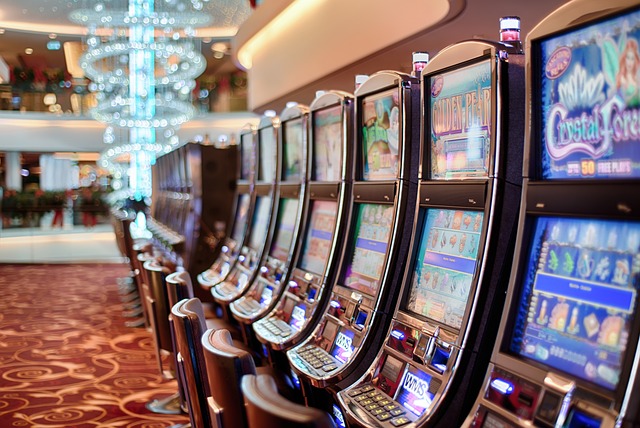Facial recognition is no longer confined to smartphones or airports — it’s rapidly becoming a key feature in modern gambling venues. Casinos and betting halls around the world are adopting this technology to enhance security, improve customer experience, and comply with regulatory demands. But as with any innovation that involves personal data, facial recognition in gambling brings both opportunities and concerns.
What Is Facial Recognition Technology?
Facial recognition is a biometric system that identifies individuals by analyzing unique facial features — such as the distance between the eyes, the shape of the nose, or the curve of the jawline. In gambling environments, cameras capture player images and compare them against stored databases for various purposes.
Before diving deeper into its practical uses, it’s essential to understand that the technology doesn’t just serve as a security tool. Increasingly, it plays a major role in responsible gambling initiatives and personalized player experiences.
How Casinos Use Facial Recognition
Facial recognition systems in casinos have several operational benefits. They help identify banned individuals, detect fraud, and prevent underage gambling. But beyond safety, these systems are also being used to enhance customer service.
Security and Fraud Prevention
Casinos are natural targets for cheating, theft, and fraud. Facial recognition allows operators to instantly flag known offenders as they enter the property. If a person previously caught counting cards or involved in scams reappears, the system can alert security before they reach the gaming floor.
This level of automation minimizes human error and ensures consistent vigilance. Compared to traditional surveillance, it’s faster and less intrusive — a clear advantage in high-traffic environments.
Responsible Gambling Enforcement
Facial recognition isn’t only about catching the bad actors. Many casinos use it to support self-exclusion programs. Players who voluntarily ban themselves from gambling can be identified automatically if they attempt to re-enter, protecting them from relapse.
This proactive measure reduces administrative work for casino staff and demonstrates genuine commitment to responsible gambling policies.
Personalized Player Experience
Another growing application lies in personalization. Once a player opts in, facial recognition can link their activity across games and sessions, helping casinos tailor promotions, bonuses, or hospitality services.
For example, a frequent player might receive complimentary drinks or targeted loyalty rewards without having to swipe a card or log in manually.
| Use Case | Main Benefit | Example |
|---|---|---|
| Security Monitoring | Prevents cheating and fraud | Detects banned individuals |
| Responsible Gambling | Supports self-exclusion | Alerts staff when excluded players enter |
| Customer Service | Enhances personalization | Offers tailored rewards instantly |
Advantages for Operators and Players

From an operational standpoint, facial recognition improves efficiency and compliance. It automates identity verification, helps with age checks, and supports anti-money laundering (AML) procedures.
For players, it means faster entry, reduced paperwork, and a smoother experience overall. In the future, logging into digital casinos might be as simple as looking at your webcam.
At the same time, this technology builds trust. When players know that casinos use sophisticated tools to prevent fraud and promote fair play, they are more likely to feel secure and stay loyal to the brand.
Privacy and Ethical Concerns
However, facial recognition raises legitimate privacy concerns. Players may worry about where their data is stored, how long it’s kept, and who has access to it.
Before implementing these systems, responsible operators must ensure compliance with local privacy laws such as the GDPR in Europe or PIPEDA in Canada. They should also provide transparent information on data use and allow players to opt out whenever possible.
How Casinos Can Use It Responsibly
To maintain trust, casinos should follow clear ethical guidelines. That includes:
- Using encrypted storage for all biometric data.
- Limiting data access to authorized personnel only.
- Deleting player data after a set period or upon request.
- Informing patrons about how facial recognition works before use.
Such transparency ensures that the technology serves both business and consumer interests without crossing ethical lines.
The Future of Facial Recognition in Gambling

As systems become more advanced, facial recognition will likely expand into online and VR gambling spaces. Players could authenticate instantly without passwords or manual ID checks. In hybrid casinos, where physical and digital play blend, biometric systems will link real-world and online profiles seamlessly.
Integration with AI will also increase. Casinos might soon use facial analysis to detect emotional cues — such as stress or excitement — to identify problem gambling behaviors early.
Still, this future depends on careful regulation and public acceptance. If used responsibly, facial recognition could mark one of the biggest technological leaps in the history of gambling.
Conclusion
Facial recognition in gambling venues represents a balance between innovation and responsibility. It strengthens security, enhances personalization, and supports safer play, but it also challenges the industry to handle sensitive data with care.
The key is transparency — casinos that embrace the technology ethically will gain both regulatory favor and player trust. Those that misuse it risk damaging reputations built over decades.
